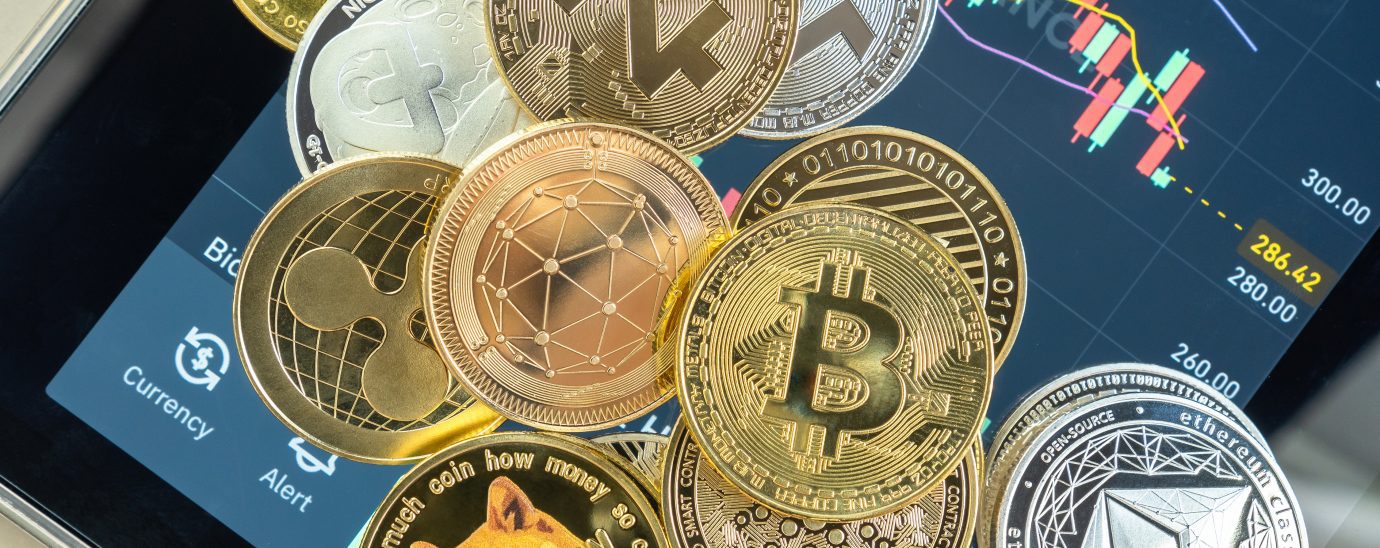Beyond Bitcoin: 2022’s defining crypto trends

As economies around the world continue to pivot to the crypto market, there’s no doubt that 2022 will see the innovation stakes raised even higher. Kristjan Kangro, CEO and founder of Change, a European cryptocurrency investing platform for retail investors, explores the defining cryptocurrency trends to come in the year ahead.
To say that 2021 has been a big year for the crypto market is an understatement. Cryptocurrency has now become more than just the choice of the ‘digitally savvy’ but a pillar of popular culture. Crypto is now not only recognised by major institutions but embedded within more leading businesses than ever before. Earlier this year the capitalisation of the market saw a threefold increase to an all-time high of $2.5 trillion, and this is just beginning.
Amid the rising case for a more transparent, digitalised approach to global finance, the crypto industry continues to evolve rapidly – going beyond its early Bitcoin origins, to effectively transform the face of finance as we know it. The result is an abundance of opportunity for the investor in-the-know to grow their portfolio and unlock new profit potential. But, with so many different crypto trends on the market, where to begin?

The DeFi Disruptor
One of the most important and exciting innovations to gain ground in the past twelve months is without a doubt decentralised finance. For those less familiar, decentralised finance (DeFi) is the concept of moving power and control away from traditional financial institutions, such as banks and brokerages, and into the hands of people like you and me.
It brings to life a world where financial transactions and products are all run on a public blockchain without a middleman. Effectively creating a more transparent, open and free financial system by reducing complicated procedures and costly checks associated with traditional finance. Applied en masse, it will result in a truly global economy; an economy where anyone, irrespective of the financial infrastructure or controls in their own country will have the same access and opportunities as everyone else.
Given that many millions of people are currently ‘underbanked’ or ‘unbanked’ it could help play a big role in tackling poverty too. For those already in the traditional financial world, the improved transparency and accountability makes the financial system as a whole more stable, meaning scenarios like the 2008 financial crisis would become far less likely.
Over the course of 2021 we’ve seen more companies and countries look at ways to embrace DeFi. Scores of DeFi projects have been launched and according to accountancy giant EY – the value of assets locked into DeFi grew from less than $1 billion in June 2020 to more than $98 billion in September 2021. This trend looks set to dominate in 2022 as new DeFi coins, projects and innovations continue to come to the fore.
More than a Token Movement
Non-fungible tokens (NFTs) are another incredibly exciting area, although NFTs are predominantly used in art, music and sports, they have recently expanded to include other types of digital property, including digital real estate. As the world becomes more digitalised and connected, the opportunity for fraud, identity theft and other cyber security breaches is on the rise. NFTs can play part of the solution.
Due to the way each asset is minted uniquely as an NFT on a blockchain, it offers the ultimate decentralized and immutable verification. In the future this could help everyone from brands, insurance companies and banks through to institutes and governments across the world. How? By speeding up all the types of application and identification processes through the ability to verify and trust the same single code.
One example might be a designer shoe brand which uses NFTs to verify its products – where each serialised pair of shoes has a unique ID embedded in the physical product which can be scanned by companies and consumers to prove its authenticity. In this way, in the future NFTs won’t just be confined to the big-tickets items like art, but instead could be used for everything from your cinema ticket and gym subscription through to your car key.
Crypto choices
As Bitcoin is the most established and widely used crypto asset, it is understandable why it may be the obvious first investment choice. However, in the next few years we’ll see other areas of the crypto world really start to take hold. Some great current examples include Cardano (ADA) & Polkadot (DOT). Both offer an interesting play to hedge against Ethereum as potential competitors for the best smart contracts platform. Solana (SOL) is also worth a mention, it’s one of the fastest growing blockchain ecosystems and offers a great way to scale user friendly apps.
Uniswap (UNI) is another one to watch. As the world’s largest decentralised exchange, Uniswap by market capitalisation, it’s a key player in its field and a driving force behind a lot of crypto innovation happening today. Alongside the wider DeFi movement, the public are going to see plenty more DeFi assets and services come to the forefront too and make themselves more known in the mainstream. We know this because in Change, over 90% of our community stated a clear interest in getting to know more DeFi assets alone last year.
Read More:
- Which crypto wallet just dropped its first digital debit card?
- PayPal has enabled its UK customers to buy, hold and sell cryptocurrency
- Decentralized finance: a movement you can bank on
As we look to the year ahead, there’s no doubt that we’ll see a continued increase in market acceleration as more and more people turn to crypto. In this way, taking the time to keep on top of the market and joining a crypto community, or two, online could pay dividends.
Click here to discover more of our podcasts
For more news from Top Business Tech, don’t forget to subscribe to our daily bulletin!